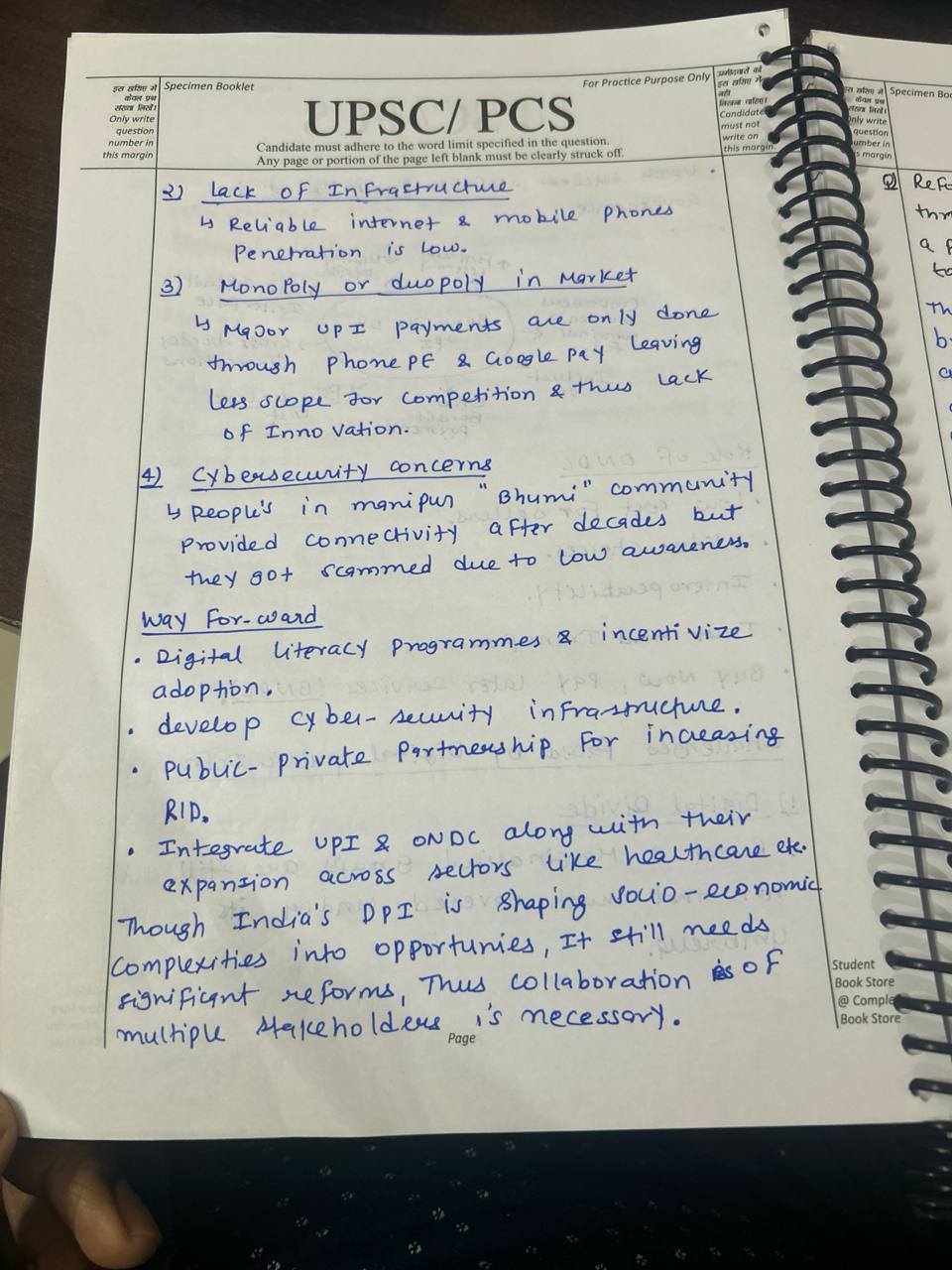Outline the moral precepts that serve as the foundation for a citizen’s charter. Talk about its efficacy and goal in India as well.(Answer in 150 words)
Reforming the political party system in India is pivotal for establishing an effective governance structure. Political parties are the backbone of democratic governance, responsible for representing diverse societal interests, formulating policies, and ensuring accountability. However, the current sRead more
Reforming the political party system in India is pivotal for establishing an effective governance structure. Political parties are the backbone of democratic governance, responsible for representing diverse societal interests, formulating policies, and ensuring accountability. However, the current system faces challenges such as lack of internal democracy, criminalization, and opaque funding.
Reforming these aspects can significantly enhance governance. Promoting internal democracy within parties ensures leadership and candidacy are based on merit and democratic principles, fostering capable and ethical leadership. Decriminalizing politics by disqualifying candidates with serious criminal charges can enhance the integrity of public offices and reduce corruption.
Transparency in political funding is crucial to curb the undue influence of money in politics, ensuring policies are shaped by public interest rather than vested interests. Implementing stringent regulations on political donations and enhancing disclosure norms can facilitate this transparency.
However, these reforms face resistance from within the political establishment, which benefits from the status quo. Moreover, the success of these reforms depends on effective implementation and continuous monitoring by independent institutions and civil society.
In conclusion, while reforming the political party system is not a panacea, it is a fundamental step towards a more accountable, transparent, and efficient governance structure in India. It requires sustained political will, robust legal frameworks, and active civic engagement.
See less



Answer: The concept of a Citizen's Charter enshrines the trust between the service provider and its users. A Citizen's Charter outlines the service commitment of organizations or service providers towards providing quality, high-standard services, including mechanisms for grievance redressal. EthicaRead more
Answer: The concept of a Citizen’s Charter enshrines the trust between the service provider and its users. A Citizen’s Charter outlines the service commitment of organizations or service providers towards providing quality, high-standard services, including mechanisms for grievance redressal. Ethical principles on which the Citizen’s Charter is formulated are:
The purpose of a Citizen’s Charter as outlined by the Department of Administrative Reforms and Public Grievances (DARPG) are as follows:
The Citizen’s Charter has increased the participation of the common man in the efficient working of an organization by making the citizens aware of the aims and goals of the organization. Further, it has helped in reducing corruption by ensuring transparency and accountability and has also led to a citizen-friendly system in order to promote good governance. However, there have been certain shortcomings with respect to its effective implementation, such as:
A Citizen’s Charter essentially focuses on the rights of the public and the obligations of the public servants. Redesigning, re-engineering, and restructuring the Charter by providing wider consultation and awareness generation through customer surveys and customer Councils, including an external review process, involving and empowering frontline employees and their capacity building through training and building on new skills will be required to make it more dynamic and citizen-friendly.
See less